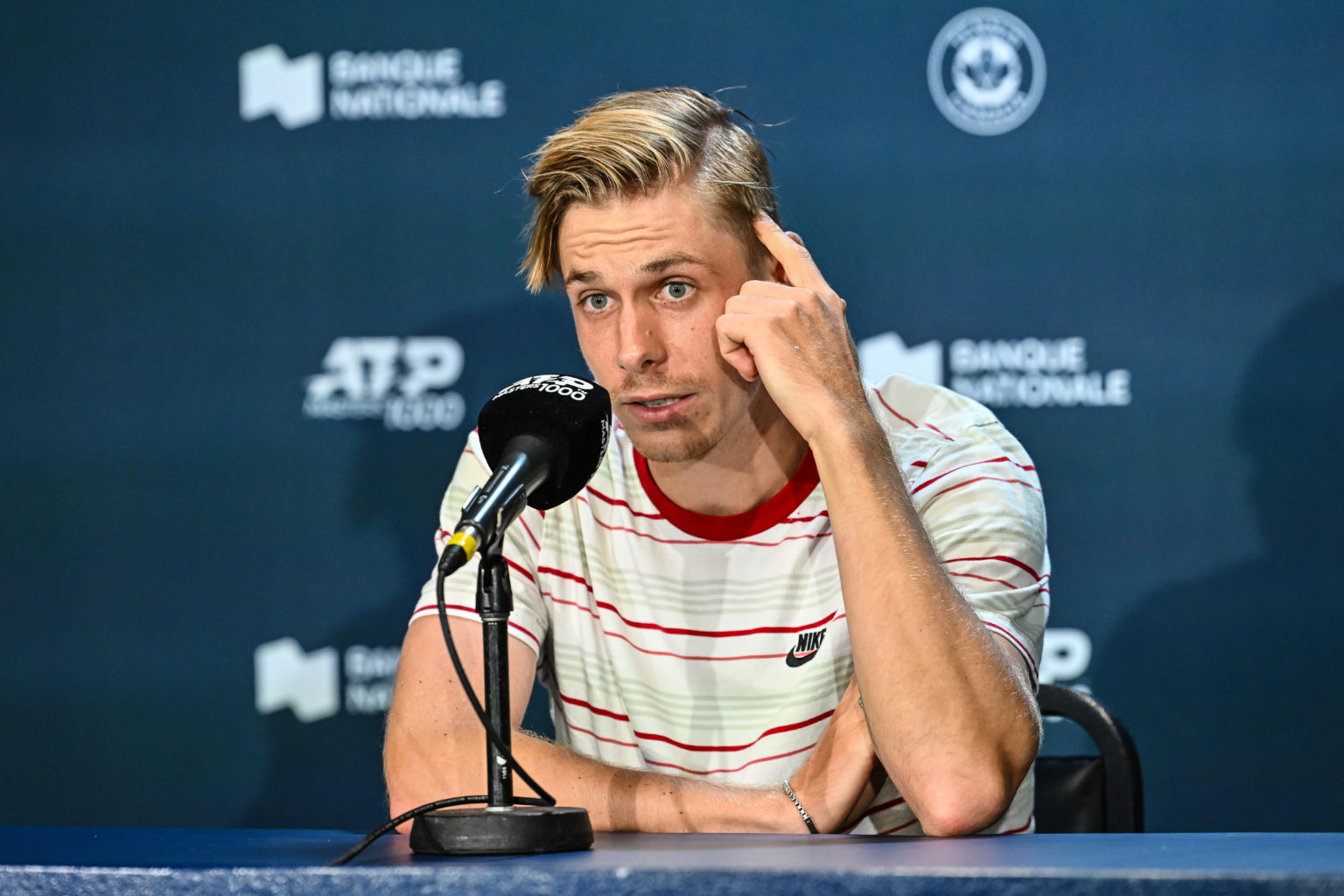
Denis Shapovalov, the Canadian tennis sensation, has once again found himself at odds with tennis authorities, expressing his frustrations over a newly announced International Tennis Federation (ITF) rule set to take effect at the beginning of next year. This rule allows off-court coaching during matches, a change that has sparked significant debate within the tennis community. Shapovalov, known for his fiery personality and outspoken nature, has made it clear that he is not in favor of this new direction for the sport, which he believes undermines its core values.
### **Shapovalov’s History of Discontent**
Shapovalov’s relationship with tennis officials has been strained for some time, and his latest comments come on the heels of a tumultuous North American hard court season. In a series of unfortunate events, the 25-year-old faced a major setback earlier this summer when he was defaulted from a match following a heated exchange with a fan. This incident seemed to set the tone for the rest of his hard court campaign, as he struggled to find his form in high-profile tournaments such as Montreal, Cincinnati, and the US Open. Despite a recent uptick in his results, Shapovalov has cut a frustrated figure, grappling with both on-court performance and off-court relations with officials.
His latest criticism stems from the ITF’s decision to implement a rule that permits off-court coaching starting January 1, 2025. This change, designed with the intention of promoting fairness and enhancing the entertainment value of the game, has not been well received by Shapovalov, who views it as an affront to the essence of tennis.
### **Shapovalov’s Reaction**
In a candid post on social media platform X, Shapovalov expressed his discontent, stating, “Not just as a tennis player but as a fan of this sport, it’s sad to see this new off-court coaching rule. Tennis is special because you are out there alone. Why are you trying to change the beauty of this game?” His sentiments resonate with a significant portion of the tennis community, many of whom are concerned about how this rule might alter the dynamics of the sport.
The introduction of off-court coaching has sparked a mixed response, with numerous fans and players labeling it an “awful decision.” While Shapovalov’s comments often stem from his own frustrations and past grievances, in this instance, he has tapped into a broader unease among tennis enthusiasts. His reaction underscores a sentiment that tennis, unlike team sports, is distinct in its challenge to individual players.
### **The Uniqueness of Tennis**
One of the defining characteristics of tennis is the solitary nature of the competition. Players must rely solely on their skills, instincts, and mental fortitude to navigate the complexities of a match. Legendary players of the past, such as Roger Federer, Rafael Nadal, and Serena Williams, have demonstrated an extraordinary ability to adapt and problem-solve during high-pressure situations without the aid of a coach in the midst of a match. This aspect of the sport adds to its allure, showcasing the players’ tactical thinking and resilience.
Shapovalov’s concerns about increased reliance on external help raise important questions about the potential impact on the competitive landscape. There is a fear that allowing mid-match coaching could create an uneven playing field, widening the gap between players who have the financial resources to employ coaches and those who do not. Tennis has long been celebrated for its individualism, and introducing more opportunities for coaching might dilute that essential quality.
### **A Broader Debate**
The debate surrounding off-court coaching reflects larger discussions about the evolution of sports in general. As the landscape of professional athletics continues to change, there is an ongoing conversation about how to maintain the integrity of individual sports while also making them more engaging for fans. Some argue that integrating coaching could make matches more dynamic, enhancing the viewer experience and potentially drawing in new fans. However, others, like Shapovalov, believe that such changes risk fundamentally altering what makes tennis unique.
The backlash against the ITF’s decision is not limited to Shapovalov. Other players and fans have voiced their opinions, highlighting the potential ramifications for the sport’s identity. While coaching has become commonplace in other sports, the essence of tennis relies heavily on the individual’s ability to strategize and execute under pressure. Shapovalov’s insights resonate with those who cherish the traditional values of the game.
### **Looking Ahead**
As the countdown to the rule’s implementation begins, tennis officials and players will need to navigate this contentious issue carefully. Shapovalov’s outspokenness could serve as a rallying point for players who share his concerns. The upcoming season may see increased dialogue about the role of coaching in tennis and its implications for the future of the sport.
For Shapovalov, the fight against this rule is just one of many battles he faces as he seeks to establish himself in the highly competitive world of tennis. As he continues to develop as a player and a person, it will be interesting to see how his relationship with the sport evolves. Will he find a way to balance his fiery passion for the game with the realities of a changing landscape, or will he remain a vocal critic of the rules that govern tennis?
### **Conclusion: The Spirit of Tennis**
In conclusion, Denis Shapovalov’s criticism of the ITF’s new rule allowing off-court coaching encapsulates a broader debate about the future of tennis. While some may view the change as a progressive step towards making the sport more entertaining, others, including Shapovalov, argue that it threatens to undermine the individualistic spirit that has long defined tennis. As discussions around this rule continue, the tennis community will be watching closely to see how these changes shape the sport moving forward. Ultimately, preserving the essence of tennis while adapting to modern expectations will be a delicate balance to strike, and players like Shapovalov will play a crucial role in voicing the concerns of the sport’s passionate fanbase.
Leave a Reply